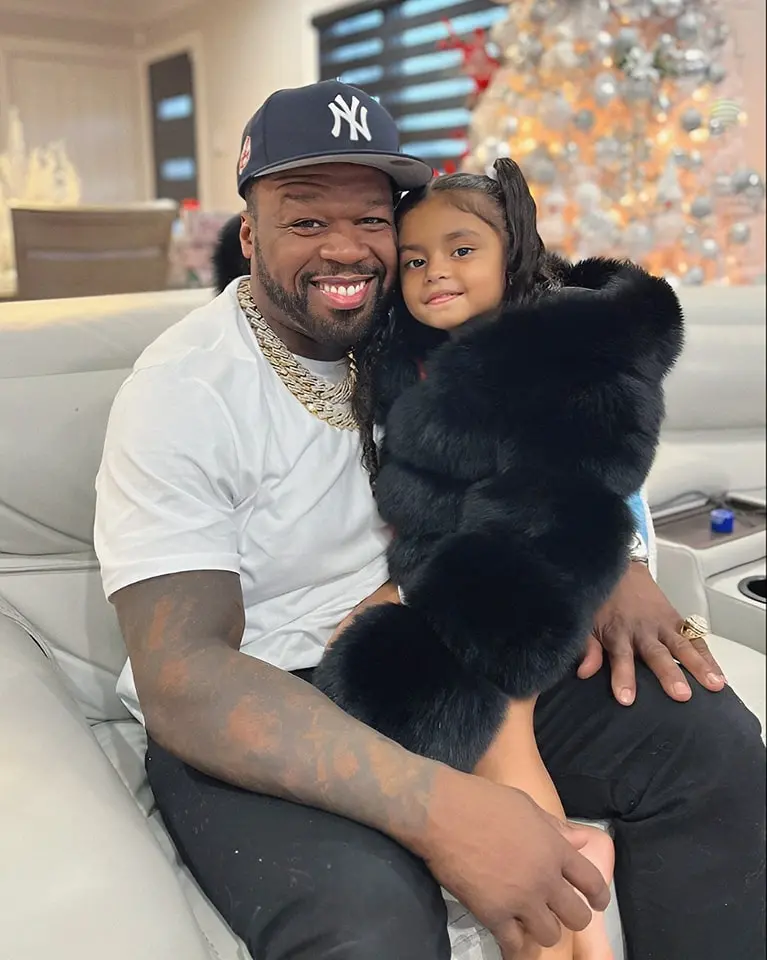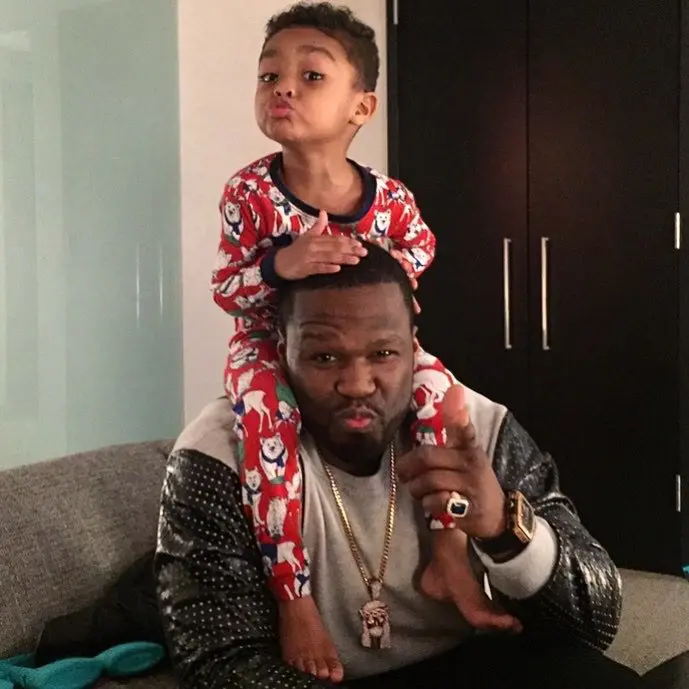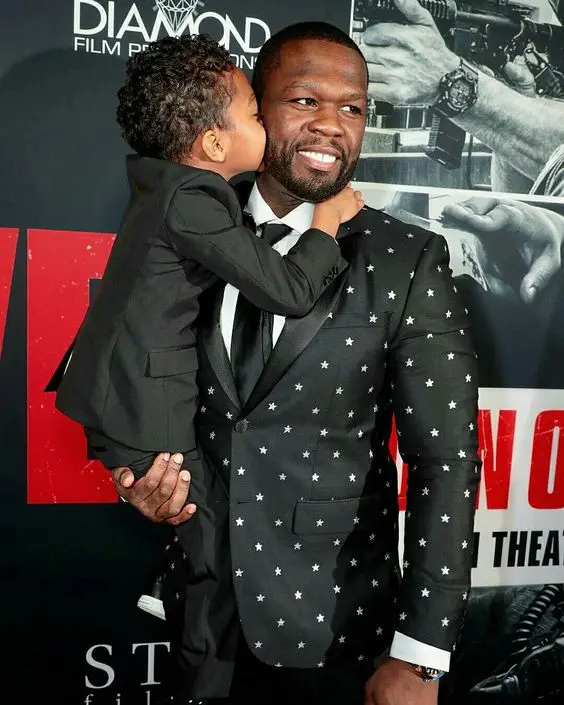
50 Cent Shares: An in-depth examination of his views on fatherhood
50 Cent has a complicated relationship with parenthood that has been molded by his own challenging upbringing and quest for personal development. Although he had trouble being there for his sons at first, he has tried to strengthen his relationships with them and now considers being a parent to be the most important role in his life. His experience provides a complex viewpoint on the difficulties and benefits of being a parent.
At the age of eight, 50 Cent lost his mother to viоlence; his grandmother reared him. His biological father did not participate in his upbringing and abandoned him when he was a baby. As a result, 50 Cent developed self-reliance early on and became dubious about being a father.
Marquise Jackson and Sire Jackson are 50 Cent’s two sons from prior relationships. 50 Cent was criticized when he was younger for not being present in their lives on a regular basis, especially Marquise’s. He has, nevertheless, worked to improve his relationship with each of his sons over time.
In an attempt to give his kids the kind of support that he was not given as a youngster, 50 Cent frequently highlights the financial side of parenting. He admits that being a parent comes with obstacles, such as juggling his demanding work schedule with family obligations.

50 Cent acknowledges his shortcomings as a father and declares his goal to surpass the absentee father figure in his life. He encourages other guys to be there for their children by using his position to promote responsible parenthood.
“I just wаnted to be able to give my kids what I didn’t have,” 50 Cent stated. I used to always promise that I would make sure my children were never hungry or cold.
Not being present for my kids when they were smaller is perhaps the biggest regret I have as a father, he said. I’m attempting to compensate for time missed.
“Being a father is the most important thing in my life,” said 50 Cent. Everything else is secondary.

He said, “I’m picking things up. I’m a developing man. Although I’m not perfect, I do my best to be a good father.
The complicated story that 50 Cent’s past legal issues and public persona have produced occasionally runs counter to his remarks regarding fatherhood. In spite of these paradoxes, 50 Cent’s path provides a genuine viewpoint on the process of reinventing what it means to be a father in the present, complete with aspects of personal development and atonement.
50 Cent’s views on parenthood are still developing as he strives to create closer relationships with his sons. Despite the intricacies and inconsistencies in his story, in the end, it conveys his desire to grow personally, learn from his mistakes, and have a positive impact on his children’s lives. His experiences highlight the pleasures and hardships of parenting and offer insightful advice to other fathers, particularly those from challenging backgrounds. The route towards becoming the father one never had is one of continuous improvement rather than perfection, as 50 Cent’s experience illustrates.

In conclusion, 50 Cent provides an honest viewpoint that can enlighten and encourage others about the nuanced reality of parenting through his candor about his challenges and development as a father. His narrative emphasizes the value of hard work, open communication, and personal development in redefining what it means to be a responsible and encouraging dad.